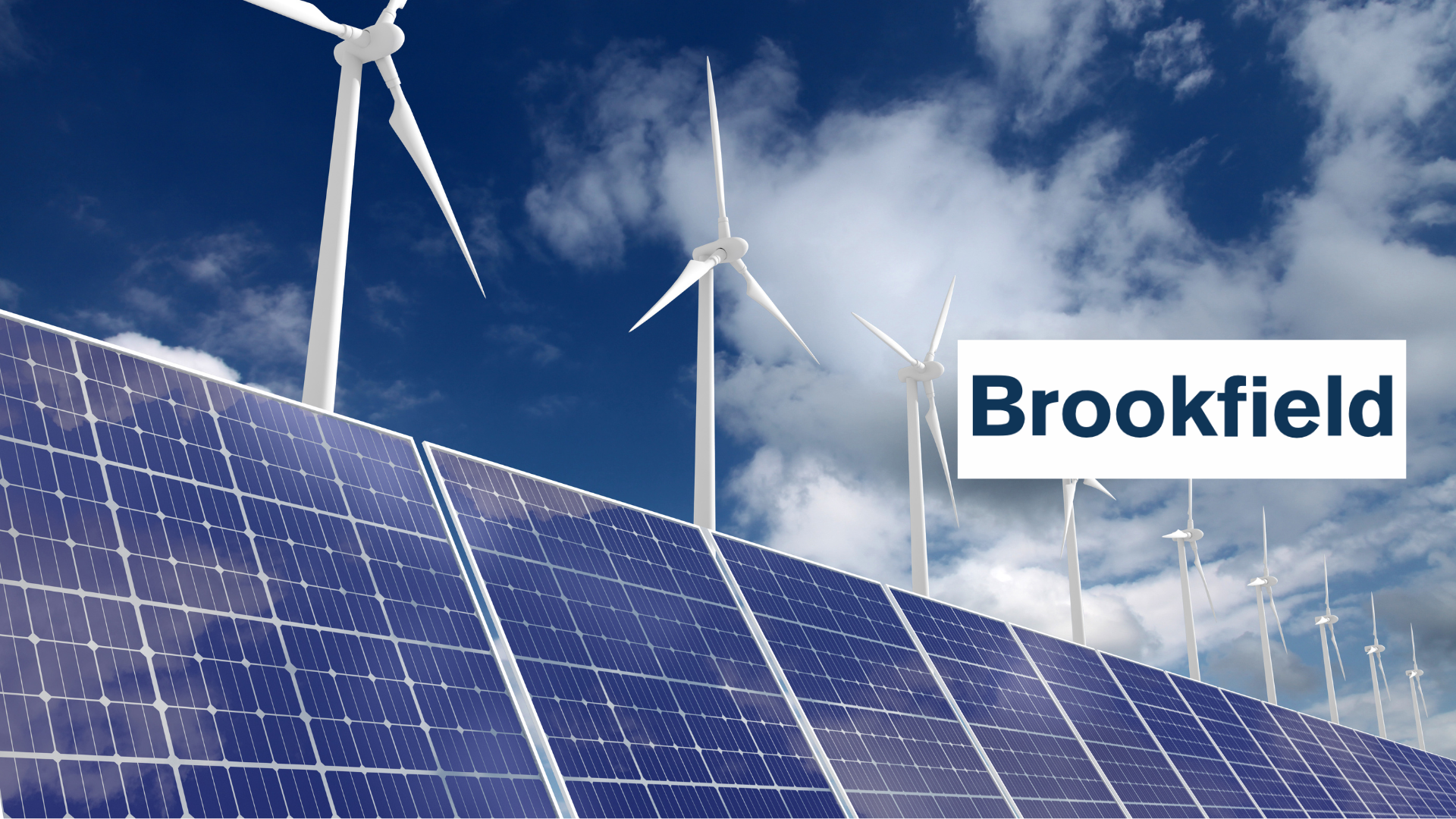
By investing in the clean energy transition and retiring fossil fuel assets, Brookfield can clean up its act
February 24, 2025
The Trump administration’s “pro fossil fuel” stance has raised questions about the financial prospects of proposed and currently ongoing clean energy projects such as solar, wind, and battery storage, despite utility scale renewables penciling out to be the least-cost option for several years now.
Private equity firm Brookfield seems to be taking an opportunistic approach to some of the current uncertainties, according to comments made by Brookfield president Connor Teskey in a February 12 interview with Financial Times. Teskey explained that the firm intends to continue investing in clean energy and anticipates that as electricity demand continues, electricity from renewables will also be in demand. Teskey stated: “The scale of the demand growth requires companies to use any and all types of power generation solutions. Renewables are going to benefit from that and will play a leading role because of their low-cost position.” Teskey failed to mention Brookfield’s extensive fossil fuel and fossil fuel infrastructure portfolio, which generated an estimated 211 million metric tons carbon dioxide (CO2) equivalent last year, according to the 2024 Private Equity Climate Risks Scorecard.
Brookfield is also actively fundraising around the energy transition. The same Financial Times article reported: “In financial results released on Wednesday, Brookfield’s earnings were buoyed by strong fundraising in its renewable power and credit-oriented investment business.
In the fourth quarter, Brookfield raised a record $29bn in new investor cash, including $3.5bn for its second fund targeting “energy transition”. The fund, which will close by mid-year, is already larger than a predecessor $15bn pool of cash Brookfield raised in 2022.”
Brookfield continues to be heavily invested in fossil fuels through its ownership of Oaktree Capital Management
Brookfield is a large private equity infrastructure asset manager with a trillion dollars in AUM as of August 2024, and received a D in the 2024 Private Equity Climate Risks (PECR) Scorecard. While Brookfield is currently one of the largest owners in the renewable power space globally, the firm has also held a majority stake in fossil-fuel-heavy Oaktree Capital Management since 2019. As of January 2025, Brookfield and Oaktree collectively owned 26 fossil fuel companies, representing 50 percent of the energy companies in its portfolio. Brookfield met 17 percent of the Climate Demands and received a D grade in the 2024 scorecard.
Brookfield has committed to be net zero by 2050. In its 2023 Sustainability Report, the firm said it “measured and tracked emissions across [its] business groups for several years … informed by the GHG Protocol and Partnership for Carbon Accounting Financials (PCAF), and that it has agreed to “set an interim target for a portion of [its] AUM with the ambition to reduce emissions by 50 [percent] by 2030.” Despite its public commitment to net-zero emissions, Brookfield continues to actively hold fossil fuel investments, including the nearly seven billion dollar buyout of Canada’s fourth-largest midstream company, Inter Pipeline, in 2021.
As another example, in 2020, Brookfield acquired a 42 percent stake in an LNG export terminal in Louisiana for $7 billion, (which is co-owned by the country’s largest LNG producer, Cheniere Energy). Although Brookfield has made a commitment to be net zero by 2050, unless the firm takes action to retire these fossil fuel assets, Brookfield would appear on track to still own and operate a large amount of fossil fuel infrastructure in 2050.
Brookfield also appears to be underreporting the firm’s true emissions. In the company’s 2023 Sustainability Report, Brookfield discloses a limited emissions analysis of “controlled portfolio companies’” Scope 1 and 2 emissions of over 9 million tons of CO2e in the reporting period, compared to PECR findings that Brookfield and Oaktree’s portfolio emits an order of magnitude more emissions, over 211 million tons of CO2e per year. Brookfield’s double standards underscore the need for private equity firms to commit to a fossil-free portfolio sooner, rather than by 2050, which is nearly a generation away.
It is encouraging to see that Brookfield appears interested in investing in the clean energy transition. Investors should ask Brookfield to also clean up the rest of the firm’s portfolio, retiring polluting fossil fuel assets and accurately reporting emissions to allow investors to accurately gauge the climate risk and accompanying financial risk of investing with Brookfield.
